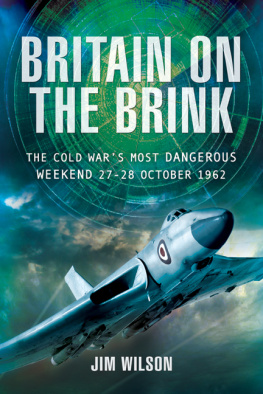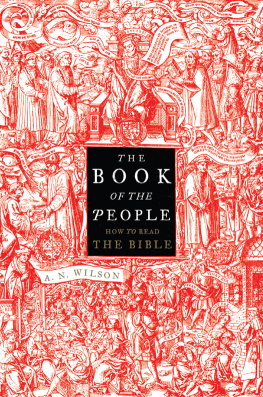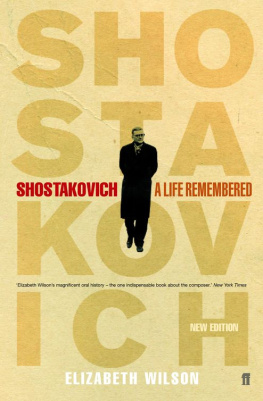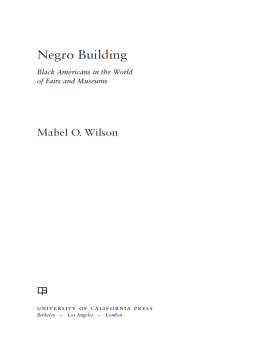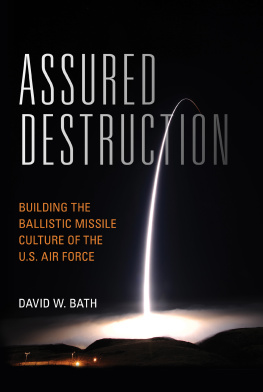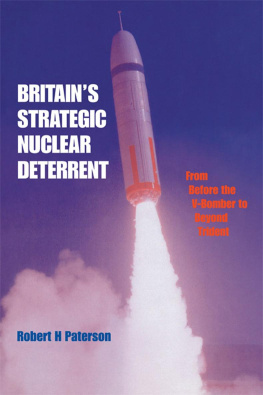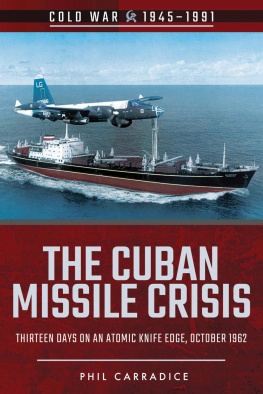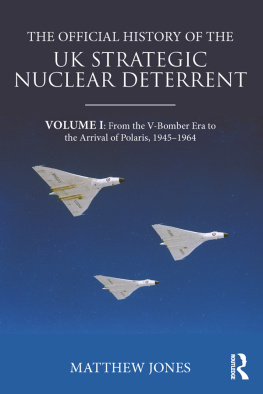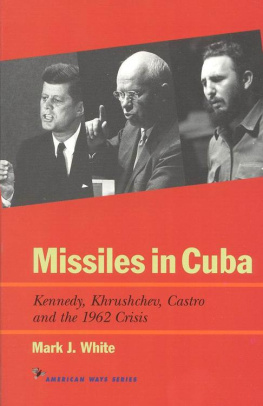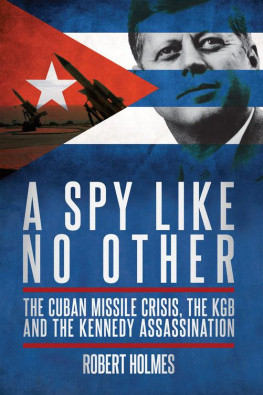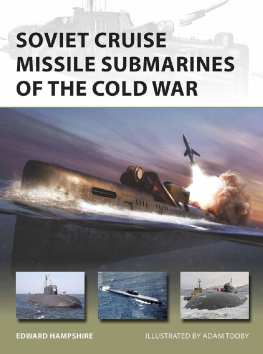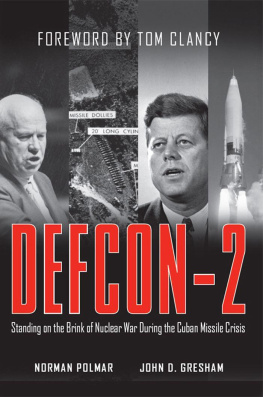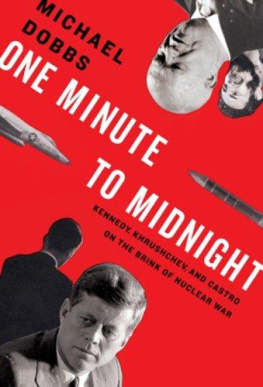
For Jonathan and Christopher

Published in Great Britain in 2012 by
Pen & Sword Military
an imprint of
Pen & Sword Books Ltd
47 Church Street
Barnsley
South Yorkshire
S70 2AS
Copyright Jim Wilson, 2012
ISBN 978-1-84884-814-6
eISBN 978-1-78337-842-5
The right of Jim Wilson to be identified as Author of this Work has been asserted by him in accordance with the Copyright, Designs and Patents Act 1988.
A CIP catalogue record for this book is available from the British Library.
All rights reserved. No part of this book may be reproduced or transmitted in any form or by any means, electronic or mechanical including photocopying, recording or by any information storage and retrieval system, without permission from the Publisher in writing.
Typeset in 10.5/12.5pt Palatino
by Concept, Huddersfield.
Printed and bound in England by
CPI Group (UK) Ltd, Croydon, CRO 4YY.
Pen & Sword Books Ltd incorporates the Imprints of Pen & Sword
Aviation, Pen & Sword Family History, Pen & Sword Maritime, Pen &
Sword Military, Pen & Sword Discovery, Wharncliffe Local History,
Wharncliffe True Crime, Wharncliffe Transport, Pen & Sword Select,
Pen & Sword Military Classics, Leo Cooper, The Praetorian Press,
Remember When, Seaforth Publishing and Frontline Publishing.
For a complete list of Pen & Sword titles please contact
PEN & SWORD BOOKS LIMITED
47 Church Street, Barnsley, South Yorkshire, S70 2AS, England
e-mail: enquiries@pen-and-sword.co.uk
Website: www.pen-and-sword.co.uk
Contents
Foreword
Most of us who lived through the Cold War became used to the threat of nuclear conflict hanging over us. The policy of Mutually Assured Destruction was of little comfort, as the arguments raged for and against the policies of governments both sides of the Iron Curtain. We got on with our lives. But the possibility of war was never too far away.
For several days in October 1962, and one dangerous weekend, that possibility was closer than at any other time during all the Cold War years. Most people in the United Kingdom did not realise how close. The Macmillan Government was desperate not to panic the public, and desperate not to inflame an already terrifying situation.
The Cuban Crisis put the UK squarely into the front-line had the confrontation, centred on Washington and Moscow, led to nuclear conflict. And it so easily might have done, either as a result of a misjudgement or a mistake.
The British public was largely unaware of the appalling dangers they faced. The fact that British nuclear forces went to the highest level of operational alert at any time during the Cold War years, was not even laid clearly before the British Parliament, nor amazingly was it debated by the British Cabinet.
Britain on the Brink attempts to put the British dimension of the Cuban Crisis into context, and records the memories of some of those in Britains V-Force and missile squadrons who bear personal witness to how close the generation of the 1960s came to facing the awful prospect of nuclear warfare.
I am particularly indebted to former RAF personnel who set down their memories of that grim weekend when the V-Force went to a few minutes readiness, in some cases with crews waiting in their cockpits for the order to take off, and RAF launch crews on ballistic missile bases down the east coast of England waiting for the orders to launch.
My thanks to all at Pen & Sword who have overseen this book to publication. Grateful thanks too to my wife Judith for her patient support and understanding.
Jim Wilson OBE
Carleton Rode, Norfolk
Foreword
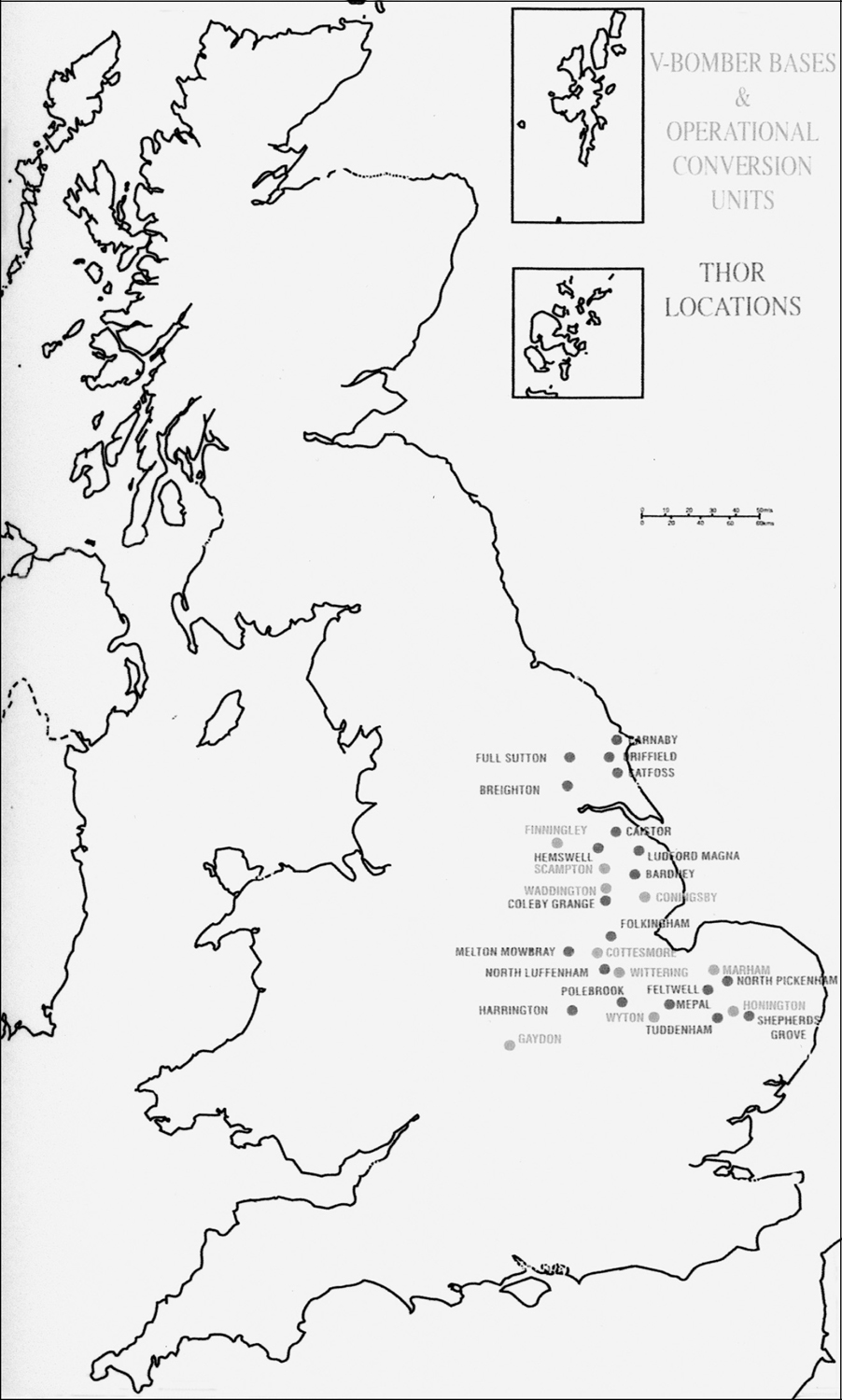
RAF V-Force bases and Thor launch sites in the early 1960s.
Introduction
If the Third World War is fought with nuclear weapons, the fourth will be fought with bows and arrows.
Lord Louis Mountbatten,
Chief of the Defence Staff 195965
Fifty years ago the most dangerous days of the entire Cold War took the world to the brink of nuclear conflict.
The Cuban Missile Crisis has been exhaustively written about, documented, and analysed from an American perspective. But potentially, the most dangerous place to have been during those days of mounting tension was Great Britain. The UK was host to American bases that constituted the United States first-line of nuclear defence. Britain was extremely vulnerable; directly in the sights of the USSRs stockpile of nuclear weapons. Yet the Macmillan Government chose to stand on the margins, and take a risky one-way bet that the crisis would be resolved without war. Ministers decided not to put into practice any of the steps, meticulously planned by civil servants in Whitehall, which were designed to secure some degree of national survival should nuclear conflict break out.
The British public were intentionally kept in the dark about the threat hanging over them. The government seems to have been afraid that to be too open would have caused widespread panic. Its public line during the crisis was one of military non-involvement. American nuclear bases on UK sovereign territory were ordered by their headquarters across the Atlantic to an unprecedented operational alert, only just short of war, without prior consultation with British authorities. There was dialogue on the trans-Atlantic hot-line between President and Prime Minister, but the intention from the American side was more to inform than to consult. Macmillan himself was desperate nothing should be done which could exacerbate an already dangerous situation, even if it meant leaving the nation more vulnerable and exposed should war occur.
By keeping management of the crisis almost exclusively in the hands of himself and his Foreign Secretary, Sir Alec Douglas-Home, the Prime Minister ran a grave risk. It was a risk that, fortunately for him and us, ultimately paid off. But had Khrushchev and Kennedy not reached a deal and had the cards of international diplomacy fallen differently the UK could have ended up a virtual waste-land under bombardment from Soviet nuclear missiles. The consequences do not bear thinking about.
Questions still remain over many aspects of the approach the Macmillan Government took in the face of the greatest test of the Cold War. Was the decision to leave the British population so ill-informed justified? Why was the British Parliament not told the full story, even weeks after the crisis was over? Why were carefully planned transition to war precautions, never activated? Were there disconnects between government ministers and British military commanders who were responsible for the UKs nuclear deterrent? The Commander in Chief of Bomber Command certainly thought there were. How closely were the American Strategic Air Command bases in the UK and the RAFs V-bomber and missile forces in touch, and their military strategies aligned?
The experiences of former RAF personnel tell part of the story of Britain on the brink. They show without any doubt that when the ultimate test appeared a reality, the highly trained crews and support personnel, whose role it was to launch Britains ultimate deterrent, were prepared to discharge their duty whatever the cost.
Cabinet minutes and other documents now de-classified shed a little light; although it is astonishing to find that in October 1962 there were no discussions about UK military alert states or even any reference to specifically military matters during either of the two meetings of the British Cabinet in the crucial days of the crisis. Indeed, the defence secretary made no remarks or submissions at either session of the cabinet. It is even more incredible that at the only meeting of the governments defence committee during the period of mounting tension, there was no mention of Cuba, the world crisis, Britains nuclear deterrent forces, or their state of readiness, should the dangerous face-off over Cuba have led to an attack on the UK.
Next page
